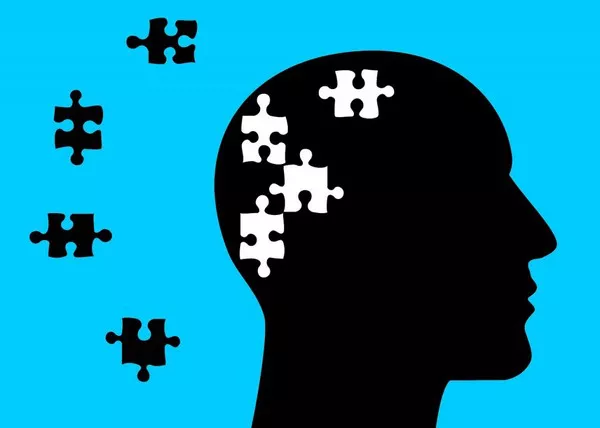Mental illness affects millions of individuals worldwide, yet stigma and misconceptions often deter people from seeking help. Unfortunately, when mental illness goes untreated, it can have far-reaching and debilitating consequences. In this article, we will explore the multifaceted impacts of untreated mental illness, shedding light on the importance of early intervention and treatment.
Escalation of Symptoms
When mental illness is left untreated, the symptoms often worsen over time. Conditions such as depression, anxiety, bipolar disorder, and schizophrenia can become more severe, leading to greater emotional distress and impairment in daily functioning. For instance, untreated depression may evolve into a major depressive episode, making it even more challenging to overcome.
Impaired Relationships
Untreated mental illness can strain personal relationships, including those with family, friends, and colleagues. People with untreated mental health conditions may experience mood swings, irritability, and a lack of emotional responsiveness, making it difficult for others to understand and support them. This can lead to social isolation, strained marriages, and damaged friendships.
Decline in Physical Health
Mental and physical health are deeply interconnected. Untreated mental illness can lead to physical health problems, as individuals may be less motivated to take care of their bodies. Neglecting diet, exercise, and regular medical check-ups can result in health complications such as obesity, heart disease, and a weakened immune system.
Occupational Impairment
Mental health issues can significantly impact a person’s ability to perform well at work. When untreated, conditions like anxiety and depression can lead to decreased productivity, absenteeism, and increased work-related stress. In severe cases, untreated mental illness can lead to job loss and financial instability.
Substance Abuse and Addiction
Many individuals with untreated mental illness turn to self-medication as a coping mechanism. This can lead to the misuse of drugs or alcohol, which further exacerbates their mental health condition and can result in addiction. Dual diagnoses, where a person has both a mental health disorder and a substance use disorder, are common among those who do not seek treatment.
Increased Risk of Self-Harm and Suicide
One of the most critical and tragic consequences of untreated mental illness is an increased risk of self-harm and suicide. Conditions like depression, bipolar disorder, and borderline personality disorder can escalate to the point where individuals may contemplate or attempt suicide. Timely treatment is crucial to providing the necessary support and interventions to prevent these tragic outcomes.
Financial Strain
The cost of untreated mental illness is not limited to the individual’s health and well-being. It also poses a financial burden on society. Untreated mental health conditions result in increased healthcare costs, lost work productivity, and social welfare expenses. By addressing mental health issues early, society can alleviate some of these financial burdens.
Criminal Justice Involvement
Untreated mental illness can also lead to involvement with the criminal justice system. Individuals experiencing severe mental health crises may engage in behaviors that are not in their control. As a result, they may be arrested and face legal consequences rather than receiving the mental health treatment they need.
Family Impact
Mental illness affects not only the individual but also their family members. The emotional and financial stress caused by untreated mental illness can lead to caregiver burnout, strained family relationships, and financial difficulties. Family members often find themselves struggling to provide care and support to their loved ones.
Lost Opportunities
Untreated mental illness can deprive individuals of life opportunities. Whether it’s failing to complete education, missing out on career advancement, or avoiding personal growth experiences, untreated mental illness can hinder a person’s potential and quality of life.
Community and Societal Impact
The broader community and society as a whole also bear the burden of untreated mental illness. The criminal justice system, healthcare facilities, social welfare programs, and educational institutions all must contend with the consequences of untreated mental health conditions. The impact extends to lost productivity, increased healthcare costs, and the strain on social services.
Stigma Perpetuation
The stigma surrounding mental illness is one of the most significant barriers to treatment. When mental illness goes untreated, it perpetuates the false belief that individuals should hide their struggles, contributing to the cycle of shame and silence. This stigma can discourage others from seeking help and perpetuate a culture of denial around mental health issues.
Conclusion
Untreated mental illness is a complex and pervasive problem with far-reaching consequences for individuals, their families, and society as a whole. It exacerbates the symptoms of mental health conditions, impairs relationships, damages physical health, and hinders personal and professional growth. The financial and societal costs of untreated mental illness are significant, and the perpetuation of stigma only serves to compound these challenges.
It is crucial to prioritize mental health and seek help when needed. Timely intervention and treatment can prevent the escalating consequences of untreated mental illness, promoting recovery, resilience, and improved quality of life. By challenging the stigma associated with mental health and advocating for accessible, compassionate care, we can pave the way for better mental health outcomes and a more supportive, understanding society.

